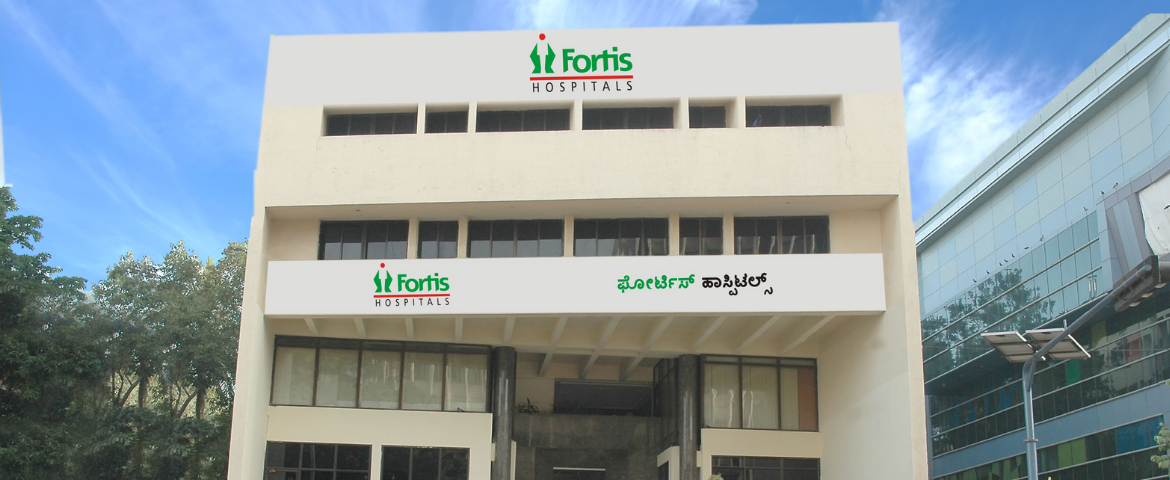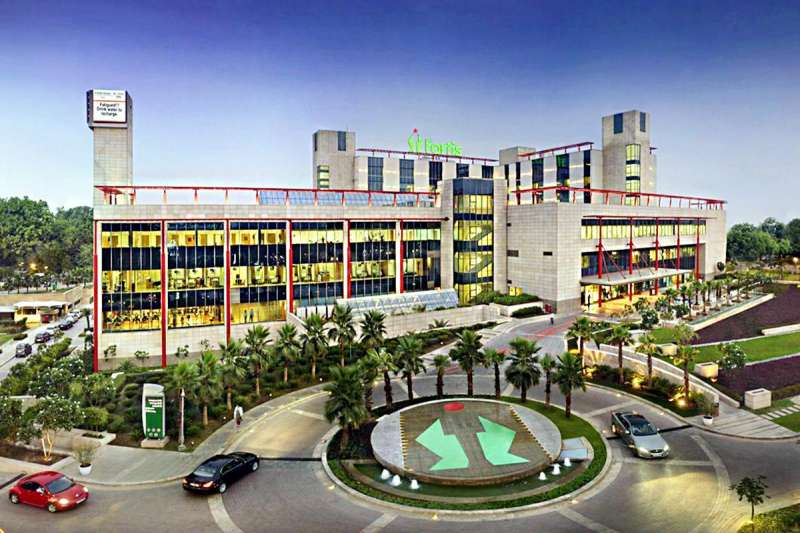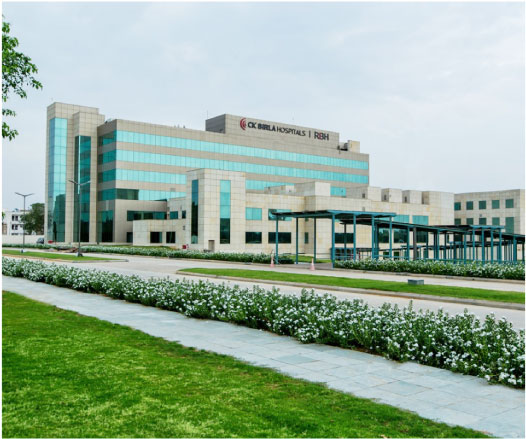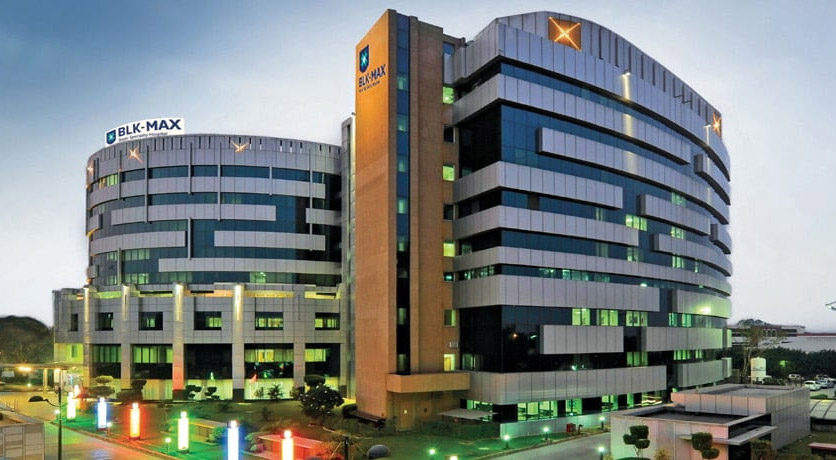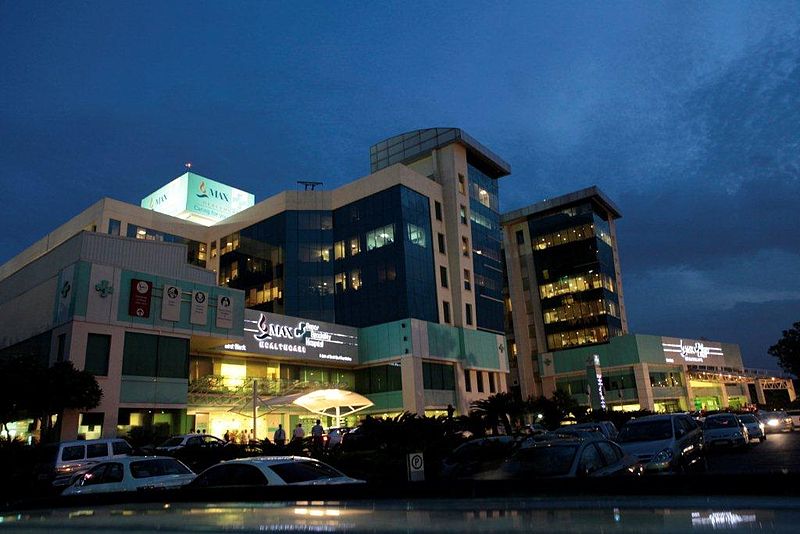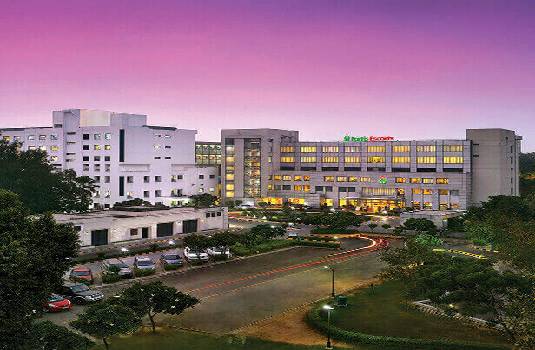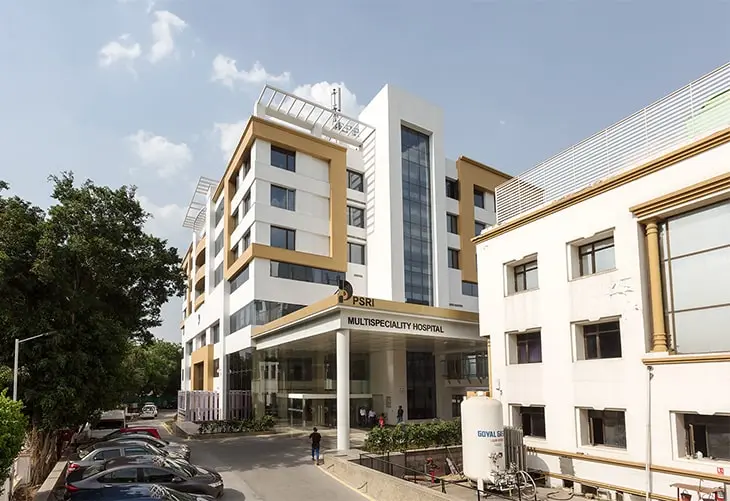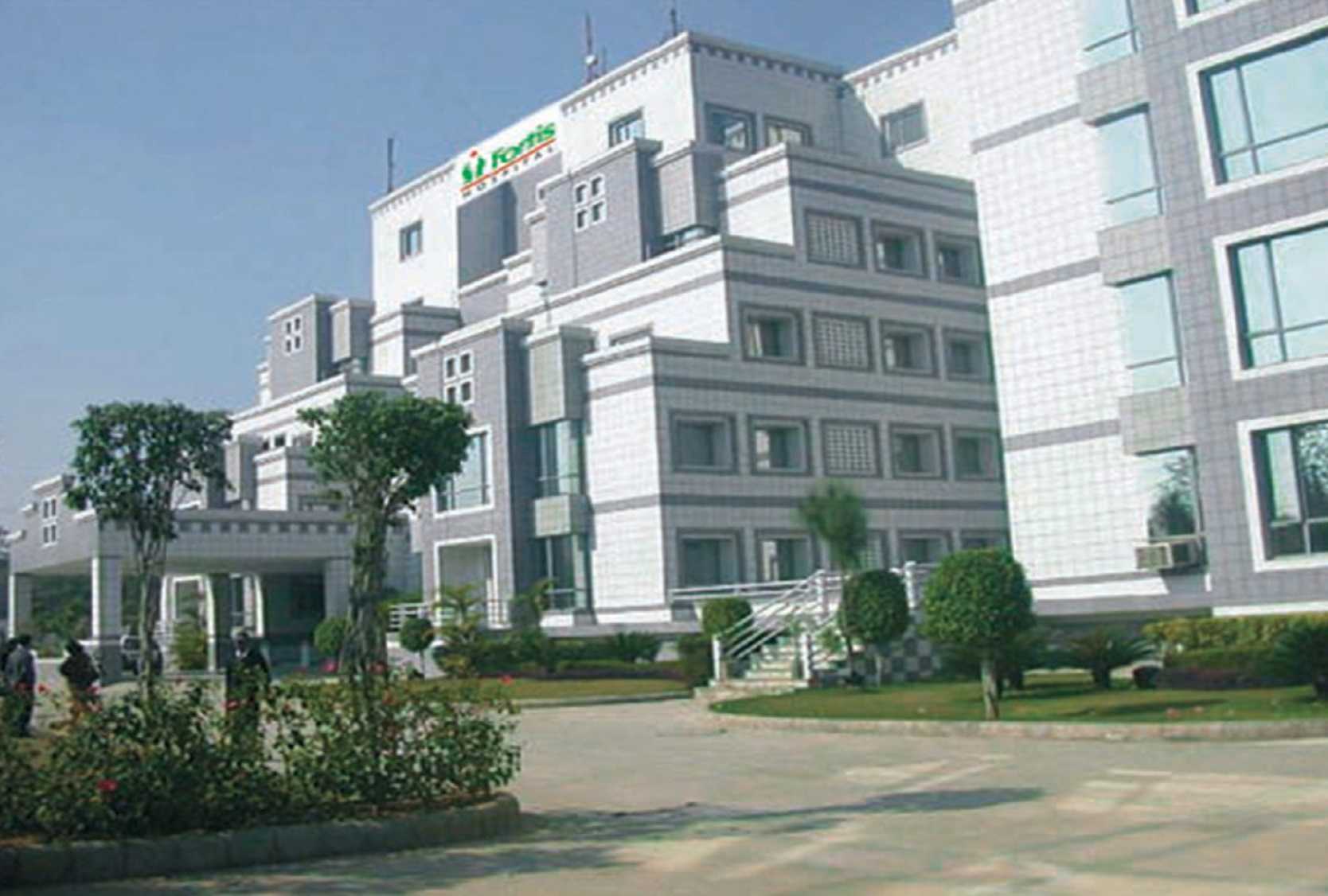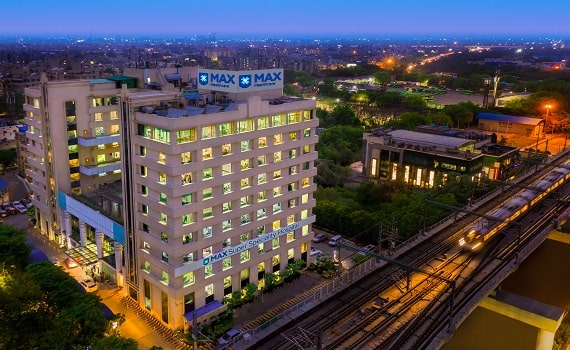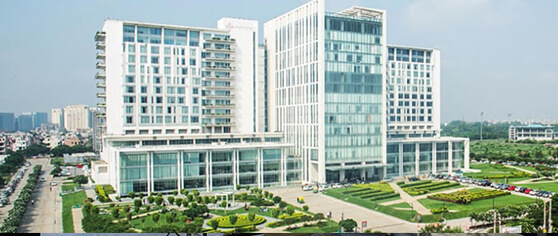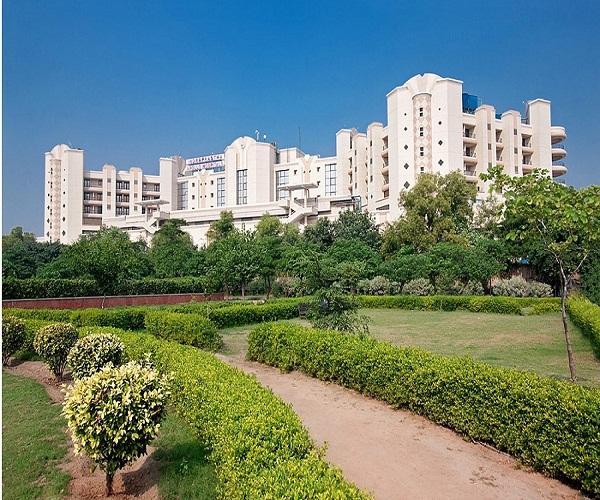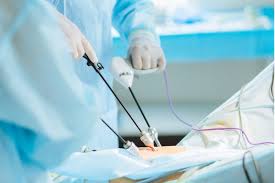Lap Assisted Hemicolectomy cost in India
The cost of Lap Assisted Hemicolectomy in India ranges from USD 3200 to USD 7000
Lap Assisted Hemicolectomy:
Laparoscopic Assisted Hemicolectomy Surgery that uses a laparoscope to remove all or part of the colon through a series of tiny incisions in the abdominal wall.
Hemicolectomy surgery is a big procedure. It's possible that you won't be able to resume routine activities for many weeks or more thereafter. You'll probably feel foggy when you wake up from surgery due to the anesthetic. Because of the pain drugs provided to you through IV drip, you won't experience any discomfort at first.
Lap Assisted Hemicolectomy:
Laparoscopic Assisted Hemicolectomy Surgery that uses a laparoscope to remove all or part of the colon through a series of tiny incisions in the abdominal wall.
Hemicolectomy surgery is a big procedure. It's possible that you won't be able to resume routine activities for many weeks or more thereafter. You'll probably feel foggy when you wake up from surgery due to the anaesthetic. Because of the pain drugs provided to you through IV drip, you won't experience any discomfort at first.
Disease Overview:
Crohn's disease
Crohn's disease is an inflammatory bowel illness that affects the intestines (IBD). It causes digestive system inflammation, which can result in stomach discomfort, severe diarrhoea, exhaustion, weight loss, and malnutrition.
Crohn's disease causes inflammation in different parts of the digestive system in different persons. This inflammation frequently extends into the bowel's deeper layers.
Crohn's disease is a painful and debilitating condition that can occasionally result in life-threatening complications.
Disease Signs and Symptoms:
Any region of your small or large intestine can be affected by Crohn's disease, and it can be continuous or encompass different segments. The condition is limited to the colon, which is a portion of the large intestine, in some patients.
Crohn's disease signs and symptoms can range from moderate to severe. They normally appear gradually, although they can sometimes appear suddenly and without notice. There may also be times when you have no indications or symptoms (remission).
When the condition is active, you may notice the following signs and symptoms:
- Diarrhea\Fever
- Fatigue
- Cramping and discomfort in the abdomen
- Stool with blood in it Mouth sores
- Appetite suppression and weight reduction
- Inflammation from a tunnel into the skin causes pain or discharge at or around the anus (fistula)
Other symptoms and indicators
People with severe Crohn's disease may also suffer from the following symptoms:
- Skin, ocular, and joint inflammation
- Inflammation of the liver or bile ducts is a condition in which the liver or bile ducts are inflamed
- Stones in the kidneys
- a lack of iron (anemia)
- In youngsters, there is a delay in growth or sexual development.
Disease Causes:
Crohn's disease has yet to be identified as a specific cause. Diet and stress were formerly suspected, but physicians now know that these variables can worsen Crohn's disease but do not cause it. Its development is presumably influenced by a number of variables, including inheritance and a dysfunctional immune system.
The immune system is the body's defence mechanism. It's possible that a virus or bacteria causes Crohn's disease, but scientists have yet to discover such a cause. An aberrant immune reaction allows your immune system to assault the cells in your digestive tract as well when it tries to fight off the invading bacterium.
Heredity. Crohn's disease is more frequent in persons who have relatives who have it, thus genes may play a role in making people more vulnerable.
Most patients with Crohn's disease, on the other hand, do not have a family history of the condition.
Factors that are at risk
Crohn's disease can be caused by a number of conditions, including:
- Age. Crohn's disease can strike at any age, although it's more likely to strike while you're young. Most persons with Crohn's disease are diagnosed before they reach the age of 30.
- Ethnicity. Although Crohn's disease can afflict persons of any ethnicity, white people, particularly those of Eastern European (Ashkenazi) Jewish origin, are at the greatest risk. However, Crohn's disease is becoming more common among Black people in North America and the United Kingdom.
- History of the family. If you have a first-degree family with the disease, such as a parent, sibling, or kid, you're at a greater risk.
- One in every five persons with Crohn's disease has a family member who also has it.
- Smoking cigarettes. The most important controllable risk factor for Crohn's disease is cigarette smoking. Smoking also causes more severe illness and increases the likelihood of requiring surgery. It's critical to quit smoking if you do.
- NSAIDs are nonsteroidal anti-inflammatory drugs. Ibuprofen (Advil, Motrin IB, and others), naproxen sodium (Aleve), diclofenac sodium, and others are among them. While they do not cause Crohn's disease, they can promote intestinal inflammation, which can exacerbate the condition.
Disease Diagnosis:
After ruling out other probable explanations for your signs and symptoms, your doctor will most likely diagnosis Crohn's disease. Crohn's disease cannot be diagnosed with a single test.
To confirm a diagnosis of Crohn's disease, your doctor will likely employ a combination of tests, including:
Tests in the lab
Tests on the blood. Blood tests may be recommended by your doctor to check for anaemia (a disease in which there aren't enough red blood cells to provide enough oxygen to your tissues) or infection indications.
Stool research. You may be asked to give a stool sample so that your doctor may check for concealed (occult) blood or organisms in your faeces, such as parasites.
Procedures
Colonoscopy. Using a tiny, flexible, illuminated tube with a camera at the end, your doctor may observe your whole colon and the very end of your ileum (terminal ileum). Your doctor may also collect tiny samples of tissue (biopsy) for laboratory study during the surgery, which may aid in the diagnosis. If granulomas, or clusters of inflammatory cells, are found, they can confirm the diagnosis of Crohn's disease.
Tomography using a computer (CT). You could need a CT scan, which is a type of X-ray that shows greater information than a regular X-ray. The whole colon as well as tissues outside the gut are examined in this examination. CT enterography is a type of CT scan that gives you a clearer picture of your small intestine.
In many medical settings, this test has taken the place of barium X-rays.
Magnetic resonance imaging is a type of imaging that uses radio waves (MRI). To obtain detailed pictures of organs and tissues, an MRI scanner employs a magnetic field and radio waves. A fistula surrounding the anal region (pelvic MRI) or the small intestine can both be evaluated using MRI (MR enterography).
Endoscopy of the capsule You take a capsule with a camera in it and swallow it for this exam. The camera captures images of your small intestine and sends them to a belt-worn recorder. The photos are then transferred to a computer and analysed for evidence of Crohn's disease. In your stool, the camera departs your body without discomfort.
To confirm the diagnosis of Crohn's disease, you may require an endoscopy with biopsy. If there is a bowel blockage, capsule endoscopy should be avoided.
Enteroscopy with the use of a balloon. A scope is utilised in combination with an overtube device for this exam. This allows the clinician to see farther into the small intestine than ordinary endoscopes can. When capsule endoscopy reveals anomalies but the diagnosis is still in doubt, this approach comes in handy.
Disease Treatment
Crohn's disease has no known cure, and there is no single treatment that works for everyone. Reduced inflammation, which causes your signs and symptoms, is one objective of medical treatment. Another objective is to reduce complications in order to enhance long-term prognosis. In the best-case scenario, this might result in both symptom alleviation and long-term remission.
Medicine
Anti-inflammatory medications
Anti-inflammatory medications are frequently used as the first line of defence against inflammatory bowel disease. They are as follows:
- Corticosteroids can help reduce inflammation in the body, but they aren't always effective for people with Crohn's disease. Doctors often use them only after other therapies have failed.
- Oral 5-aminosalicylates were once widely utilised, but they are now universally regarded as having very little value.
Suppressors of the immune system
These medications also lower inflammation, but they do so by targeting your immune system, which creates the inflammatory chemicals. For some people, a combination of these medicines is more effective than taking just one of them.
Suppressors of the immune system include:
- Mercaptopurine (Azasan, Imuran) and azathioprine (Azasan, Imuran) (Purinethol, Purixan). These are the most often prescribed immunosuppressants for inflammatory bowel disease therapy.
- Methotrexate is a drug that is used to treat cancer (Trexall). This medicine is occasionally used for Crohn's disease patients who do not react well to previous treatments. For adverse effects, you'll need to be properly monitored.
Biologics
- This group of treatments focuses on proteins produced by the immune system. The following are examples of biologics used to treat Crohn's disease:
- Tysabri (natalizumab) and vedolizumab (Vedo) are two anti-cancer drugs (Entyvio). These medications act by preventing integrins, which are molecules found in immune cells, from attaching to other cells in the gut lining.
- Certolizumab pegol, infliximab (Remicade), adalimumab (Humira), and infliximab (Remicade) (Cimzia). These medications, also known as TNF inhibitors, function by neutralising a protein in the immune system called tumour necrosis factor (TNF).
- Ustekinumab is a monoclonal antibody that is used to treat (Stelara). This drug was recently licenced to treat Crohn's disease by inhibiting the function of an interleukin, a protein that plays a role in inflammation.
Antibiotics
In persons with Crohn's disease, antibiotics can lessen the amount of leakage from fistulas and abscesses and even heal them. Antibiotics may also help eliminate dangerous intestinal bacteria, which may play a role in stimulating the gut immune system, resulting in inflammation, according to some studies. Ciprofloxacin (Cipro) and metronidazole are two antibiotics that are often administered (Flagyl).
Dietary treatment
To treat Crohn's disease, your doctor may propose a specific diet delivered by mouth or through a feeding tube (enteral nutrition) or nutrients injected into a vein (parenteral nutrition). This can help you eat better and give your bowels a break. In the near term, bowel rest can help to lessen inflammation.
Surgery
Your doctor may prescribe surgery if diet and lifestyle modifications, pharmacological therapy, or other therapies fail to relieve your signs and symptoms. Nearly half of those with Crohn's disease will need surgery at some point. Surgery, on the other hand, does not cure Crohn's disease.
Your surgeon will remove a damaged segment of your digestive tract and then rejoin the healthy sections during surgery. Fistulas and abscesses can also be treated with surgery.
The advantages of Crohn's disease surgery are typically just transitory. Recurrence of the illness is common, especially near the rejoined tissue. To reduce the chance of recurrence, it is better to combine surgery with medication.
Country wise cost comparison for Lap Assisted Hemicolectomy:
| Country | Cost |
|---|---|
| India | $3780 |
Treatment and Cost
21
Total Days
In Country
- 7 Day in Hospital
- 2 No. Travelers
- 14 Days Outside Hospital
Treatment cost starts from
$4200
Popular Hospital & Clinic
Featured Hospital
10 Hospitals
Types of Lap Assisted Hemicolectomy in Fortis Memorial Research Institute and its associated cost
| Treatment Option | Approximate Cost Range (USD) |
|---|---|
| No Treatment option added | |
- Address: Sector - 44, Opp. HUDA City Center,Gurgaon, Haryana - 122002, India
- Facilities related to Fortis Memorial Research Institute: Private Rooms, Translator, Nursery / Nanny Services, Airport Pick up, Personal Assistance / Concierge, Free Wifi, Local Tourism Options, International Cuisine, Phone in Room, Private Driver / Limousine Services, Post operative followup, Mobility Accessible Rooms, Online Doctor Consultation, Air Ambulance, Religious Facilities, Rehabilitation, Cafe, TV in room, Car Hire, Health Insurance Coordination,
50
DOCTORS IN 35 SPECIALITIES
20+
FACILITIES & AMENITIES
Types of Lap Assisted Hemicolectomy in CK Birla Hospital, Gurgaon and its associated cost
| Treatment Option | Approximate Cost Range (USD) |
|---|---|
| No Treatment option added | |
- Address: Block J, CK Birla Hospital, Nirvana Central Rd, Mayfield Garden, Sector 51, Gurugram, Haryana 122018
- Facilities related to CK Birla Hospital, Gurgaon: The hospital has following facilities: Patient Rooms: Presidential suite, suites, junior suites, deluxe single and shared rooms 4 state-of-the-art modular OTs Critical Care Facilities Labour delivery rooms (LDR) with piped Entonox for pain management North India’s only water-birthing facility Advanced IVF laboratory Chemo Daycare center Physiotherapy Centre 24x7 Radiology - including 4D ultrasound, X-ray, digital mammography, BMD, ECHO 24x7 Pathology including advanced genetic testing 24x7 Emergency 24x7 Pharmacy Studio for fitness, antenatal and post-natal classes & to host medical and educational workshops Café serving healthy & nutritious food and drinks
13
DOCTORS IN 21 SPECIALITIES
20+
FACILITIES & AMENITIES
Types of Lap Assisted Hemicolectomy in BLK-Max Super Speciality Hospital and its associated cost
| Treatment Option | Approximate Cost Range (USD) |
|---|---|
| No Treatment option added | |
- Address: Pusa Road, New Delhi-110005
- Facilities related to BLK-Max Super Speciality Hospital: Private Rooms, Translator, Nursery / Nanny Services, Personal Assistance / Concierge, Free Wifi, International Cuisine, Phone in Room, Private Driver / Limousine Services, Post operative follow-up, Mobility Accessible Rooms, Rehabilitation, Cafe, TV in room, Car Hire, Health Insurance Coordination
17
DOCTORS IN 33 SPECIALITIES
20+
FACILITIES & AMENITIES
Types of Lap Assisted Hemicolectomy in Max Super Speciality Hospital and its associated cost
| Treatment Option | Approximate Cost Range (USD) |
|---|---|
| No Treatment option added | |
- Address: Max Super Speciality Hospital No. 1, 2, Press Enclave Road, Mandir Marg, Saket Institutional Area, Saket, New Delhi, Delhi, 110017, India
- Facilities related to Max Super Speciality Hospital:
53
DOCTORS IN 34 SPECIALITIES
20+
FACILITIES & AMENITIES
Types of Lap Assisted Hemicolectomy in Fortis Escorts Heart Institute and its associated cost
| Treatment Option | Approximate Cost Range (USD) |
|---|---|
| No Treatment option added | |
- Address: Okhla Road,New Delhi - 110 025 (INDIA)
- Facilities related to Fortis Escorts Heart Institute: Private Rooms, Translator, Nursery / Nanny Services, Personal Assistance / Concierge, Free Wifi, International Cuisine, Phone in Room, Private Driver / Limousine Services, Post operative follow-up, Mobility Accessible Rooms, Rehabilitation, Cafe, TV in room, Car Hire, Health Insurance Coordination
19
DOCTORS IN 33 SPECIALITIES
20+
FACILITIES & AMENITIES
Types of Lap Assisted Hemicolectomy in PSRI Hospital and its associated cost
| Treatment Option | Approximate Cost Range (USD) |
|---|---|
| No Treatment option added | |
- Address: Press Enclave Marg, J Pocket, Phase II, Sheikh Sarai, New Delhi, Delhi 110017
- Facilities related to PSRI Hospital: Private Rooms, Translator, Nursery / Nanny Services, Personal Assistance / Concierge, Free Wifi, International Cuisine, Phone in Room, Private Driver / Limousine Services, Post operative follow-up, Mobility Accessible Rooms, Rehabilitation, Cafe, TV in room, Car Hire, Health Insurance Coordination
8
DOCTORS IN 33 SPECIALITIES
20+
FACILITIES & AMENITIES
Types of Lap Assisted Hemicolectomy in Fortis Flt. Lt. Rajan Dhall Hospital, Vasant Kunj, Delhi and its associated cost
| Treatment Option | Approximate Cost Range (USD) |
|---|---|
| No Treatment option added | |
- Address: Fortis Flt. Lt. Rajan Dhall Hospital, Aruna Asaf Ali Marg, Pocket 1, Sector B, Vasant Kunj, New Delhi, Delhi 110070
- Facilities related to Fortis Flt. Lt. Rajan Dhall Hospital, Vasant Kunj, Delhi: Private Rooms, Translator, Nursery / Nanny Services, Personal Assistance / Concierge, Free Wifi, International Cuisine, Phone in Room, Private Driver / Limousine Services, Post operative follow-up, Mobility Accessible Rooms, Rehabilitation, Cafe, TV in room, Car Hire, Health Insurance Coordination
46
DOCTORS IN 34 SPECIALITIES
20+
FACILITIES & AMENITIES
Types of Lap Assisted Hemicolectomy in MAX Super Speciality hospital, Patpadganj Delhi and its associated cost
| Treatment Option | Approximate Cost Range (USD) |
|---|---|
| No Treatment option added | |
- Address: 108A, Indraprasth Extension, Patpadganj, New Delhi- 110092, India
- Facilities related to MAX Super Speciality hospital, Patpadganj Delhi: Private Rooms, Translator, Nursery / Nanny Services, Personal Assistance / Concierge, Free Wifi, International Cuisine, Phone in Room, Private Driver / Limousine Services, Post operative follow-up, Mobility Accessible Rooms, Rehabilitation, Cafe, TV in room, Car Hire, Health Insurance Coordination
52
DOCTORS IN 33 SPECIALITIES
20+
FACILITIES & AMENITIES
Types of Lap Assisted Hemicolectomy in Medanta-The Medicity, Gurgaon and its associated cost
| Treatment Option | Approximate Cost Range (USD) |
|---|---|
| No Treatment option added | |
- Address: CH Baktawar Singh Road, Sector 38, Gurugram, Haryana 122001
- Facilities related to Medanta-The Medicity, Gurgaon: TV in room Private rooms, Free Wifi, Phone in Room, Mobility accessible rooms, Family accommodation, Laundry, Welcome Safe in the room, Nursery / Nanny services. Dry cleaning, Personal assistance / Concierge Religious facilities, Fitness Spa and wellness Café, Business Centre, Shop, Dedicated smoking areas, Beauty Salon, Special offer for group stays, Parking available, Health insurance coordination, Medical travel insurance, Foreign currency exchange, ATM, Credit Card, Debit Card, Net banking, Diet on Request, Restaurant, International Cuisine, Treatment Related Medical records transfer, Online doctor consultation, Rehabilitation, Pharmacy, Document legalization, Post operative follow-up, Language Interpreter, Translation services, Transportation, Airport pickup, Local tourism options, Local transportation booking, Visa / Travel office, Car Hire, Private driver / Limousine services, Air ambulance
52
DOCTORS IN 33 SPECIALITIES
20+
FACILITIES & AMENITIES
Types of Lap Assisted Hemicolectomy in Indraprastha Apollo Hospitals, New Delhi and its associated cost
| Treatment Option | Approximate Cost Range (USD) |
|---|---|
| No Treatment option added | |
- Address: Mathura Rd, Jasola Vihar, New Delhi, Delhi 110076
- Facilities related to Indraprastha Apollo Hospitals, New Delhi: Private Rooms, Translator, Nursery / Nanny Services, Personal Assistance / Concierge, Free Wifi, International Cuisine, Phone in Room, Private Driver / Limousine Services, Post operative follow-up, Mobility Accessible Rooms, Rehabilitation, Cafe, TV in room, Car Hire, Health Insurance Coordination
37
DOCTORS IN 33 SPECIALITIES
20+
FACILITIES & AMENITIES
Related Packages
More Related Information
Some of the top rated doctors are:
- India

